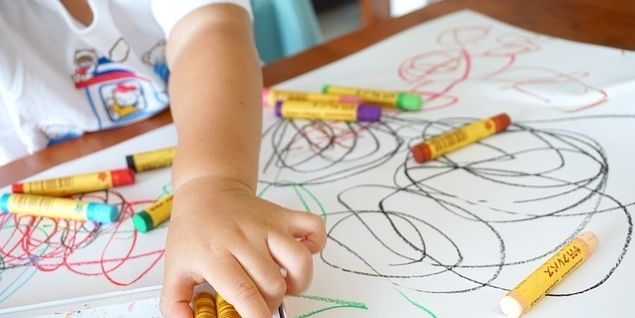Building Resilience Through Positive Reading Habits
Resilience refers to both the process and the outcome of successfully adapting to difficult or challenging life experiences, according to the definition from the American Psychological Association (APA).
It has the mental, emotional, and behavioral flexibility and ability to adjust to both internal and external demands, as per the APA. “You can withstand adversity and bounce back and grow despite life’s downturns,” says Amit Sood, MD, the executive director of the Global Center for Resiliency and Well-Being and the creator of the Resilient Option program. (Dr. Sood is also a member of the Everyday Health Wellness Advisory Board.) It’s important to note that being resilient requires a skill set that you can work on and grow over time. Building resilience takes time, strength, and help from people around you; you’ll likely experience setbacks along the way. It depends on personal behaviors and skills (like self-esteem and communication skills) and external things (like social support and resources available to you). Being resilient does not mean that you don’t experience stress, emotional upheaval, and suffering. Demonstrating resilience includes working through emotional pain and suffering.
Using the Power of Positive Reading ~
In a world inundated with distractions, cultivating a reading habit is a precious gift we can give ourselves. The benefits of regular reading are manifold, from cognitive growth and expanded vocabulary to enhanced empathy and creativity. Moreover, reading provides a sanctuary of relaxation and a path to lifelong learning. It is a habit that transcends time, age, and technology, making it one of the most valuable pursuits we can engage in. So, let us turn off our screens, open a book, and embark on a journey of personal and intellectual enrichment—one page at a time.
Mental Stimulation and Cognitive Growth: Reading is like a mental workout for the brain. When we read, we engage our minds in a complex and intricate process of comprehension, analysis, and visualization. Studies have shown that regular reading can increase brain connectivity and improve cognitive functions. It keeps the brain active and agile, reducing the risk of cognitive decline as we age.
Expanded Vocabulary and Communication Skills: Every book is a treasure trove of words waiting to be discovered. By reading regularly, we expose ourselves to a rich and diverse vocabulary. This, in turn, enhances our communication skills, enabling us to express ourselves more effectively in both written and spoken forms. A well-articulated voice can be a valuable asset in all aspects of life.
Empathy and Understanding: Literature often provide a window into the lives, thoughts, and experiences of characters from diverse backgrounds. By immersing ourselves in these stories, we can develop a deeper sense of empathy and understanding for people with different perspectives and life journeys. This, in turn, fosters tolerance and compassion, making us more socially aware and sensitive individuals.
Stress Reduction and Relaxation: Reading is an excellent way to de-stress and unwind. Escaping into the world of a good book allows us to temporarily leave our worries behind and immerse ourselves in a different reality. This relaxation not only reduces stress but also promotes better sleep and mental well-being.
Lifelong Learning and Personal Growth: Books are reservoirs of knowledge and wisdom. They provide a means for continuous learning and personal growth throughout our lives. No matter our age or stage in life, there is always something new to discover, and reading is the vehicle that can take us on these endless journeys of self-improvement.
Enhanced Focus and Concentration: In a world of quick fixes and instant gratification, reading demands patience and focus. It requires us to concentrate on a single task for an extended period, thereby enhancing our ability to focus and pay attention in other areas of life as well.
Inspiration and Creativity:
The pages of a book are often filled with creativity and imagination. Reading stimulates our creative faculties by exposing us to different worlds, perspectives, and ideas. It inspires us to think beyond the ordinary and fosters our creative endeavors.
5 Top Books on Resilience
Freedom From Anxious Thoughts and Feelings: A Two-Step Mindfulness Approach for Moving Beyond Fear and Worry, by Scott Symington, PhD
Option B: Facing Adversity, Building Resilience, and Finding Joy, by Sheryl Sandberg and Adam Grant
How to Change Your Mind: What the New Science of Psychedelics Teaches Us About Consciousness, Dying, Addiction, Depression, and Transcendence, by Michael Pollan
Resilient: How to Grow an Unshakable Core of Calm, Strength, and Happiness, by Rick Hanson, PhD
Beauty in the Broken Places: A Memoir of Love, Faith, and Resilience, by Allison Pataki
Addressing Resilience Theory:
People face all kinds of adversity in life. There are personal crises, such as illness, loss of a loved one, abuse, bullying, job loss, and financial instability. There is the shared reality of tragic events in the news, such as terrorist attacks, mass shootings, natural disasters, a global pandemic, and war. People have to learn to cope with and work through very challenging life experiences. Resilience theory refers to the ideas surrounding how people are affected by and adapt to challenging things like adversity, change, loss, and risk. Researchers have studied resilience theory across different fields, including psychiatry, human development, and change management. Resilience theory tells us that resilience isn’t a fixed trait (you can grow your capacity to practice resilience). And it’s not constant, in that you might demonstrate a lot of resilience when it comes to one challenge you’re faced with, but struggle more with being resilient when it comes to another stressor you’re up against. Flexibility, adaptability, and perseverance can help you tap into your resilience by changing certain thoughts and behaviors. Research shows that when students believe that both intellectual abilities and social attributes can be developed and improved — commonly known as having a “growth mindset” — they increase their resilience, showing a lower stress response to adversity and improved performance.
Sood says resilience involves these five principles:
Gratitude
Compassion
Acceptance
Meaning
Forgiveness
How Do I Train Myself to Be More Resilient?
The good news is that resilience can be learned. And it’s not about learning how to “grin and bear it” or to “get over it.” Nor is it learning to avoid obstacles or resist change. Building resilience is a process by which people become better at reframing thought patterns and tapping into a strengths-based approach to working through obstacles. As a process, it doesn’t happen overnight, and even if you are already resilient, it’s something you have to work at to maintain. The following are steps that can help you build resilience over time.
Develop self-awareness. Understanding how you typically respond to stress and adversity is the first step toward learning more adaptive strategies. Self-awareness also includes understanding your strengths and knowing your weaknesses.
Build self-regulation skills. Remaining focused in the face of stress and adversity is important but not easy. Stress-reduction techniques, such as guided imagery, breathing exercises, and mindfulness training, can help you regulate your emotions, thoughts, and behaviors.
Learn coping skills. Many coping skills can help in dealing with stressful and challenging situations. They include journaling, reframing thoughts, exercising, spending time outdoors, socializing, improving sleep hygiene, and tapping into creative outlets.
Increase optimism. More optimistic people tend to feel more in control of their outcomes. To build optimism, focus on what you can do when faced with a challenge, and identify positive, problem-solving steps that you can take.
Strengthen connections. Support systems can play a vital role in resilience. Bolster your existing social connections and find opportunities to build new ones.
Know your strengths. People feel more capable and confident when they identify and draw on their talents and strengths.
Resilience is not a permanent state. You may feel equipped to manage one stressor and overwhelmed by another. Remember the factors that build resilience and try to apply them when dealing with adversity!

 (1).jpeg)
.jpg)

 (1).jpeg)
.jpg)
.jpg)
.jpg)



.jpg)
.jpg)
.jpg)
